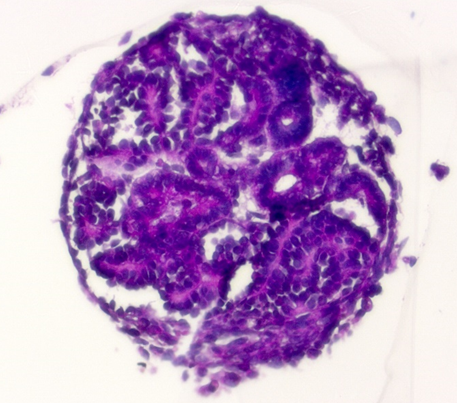Principal Investigator: PD Dr. Ivonne Löffler
DFG 2018 - 2021
Projektleiterin: Prof. Dr. Britta Qualmann
DFG 2020-2020
Our work demonstrates sex differences in renal damage secondary to diabetes mellitus. We have found that a complex interplay of sex-specific gene signatures of renal cells, sex hormone regulation, expression of the matrix protein collagen VIII and the transforming growth factor TGF-b1 is causative. We are investigating the exact relationships and underlying molecular mechanisms using different approaches (in vitro, ex vivo, animal experiments, analysis of human material, clinical study on TGF-b1 and sex hormone in diabetes mellitus).
Principal Investigator: Dr. Nadine Kuniß
2015-2019
Flash Glucose Monitoring is a method to measure interstitial glucose levels, which has been available for diabetes patients in Germany since 2014. The aim of this study was to follow-up people with diabetes type 1 and Flash Glucose Monitoring after one year regarding metabolic control and treatment satisfaction. Flash Glucose Monitoring was associated with an enormous increase in treatment satisfaction and slightly improved metabolic control (-0.4%) in people with baseline HbA1c >7.5 %. The number of capillary glucose measurements decreased significantly.
Principal Investigator: PD Dr. Alexander Pfeil
2018 - 2021
The radiological assessment of alterations of the hand skeleton performs a central role in the diagnostic of psoriatic arthritis. Based on computer assisted detection techniques (Digital X-ray Radiogrammetry and Computer-assisted Joint Space Analysis) a detailed analysis of the hand skeleton is feasible. The aim of this project is the evaluation of radiographic progression in psoriatic arthritis using bone mineral density of the metacarpal bones as detected by Digital X-ray Radiogrammetry and the quantification of finger joint space width by the Computer-assisted Joint Space Analysis.
Principal Investigator: Prof. Dr. Ralf Mrowka
Thür. Aufbaubank 2018 - 2021
This collaborative project focuses on the evaluation of cell-based reporter systems for the potential diagnosis of Candida pathogens. Human cell lines are genetically modified to act as reporters.



